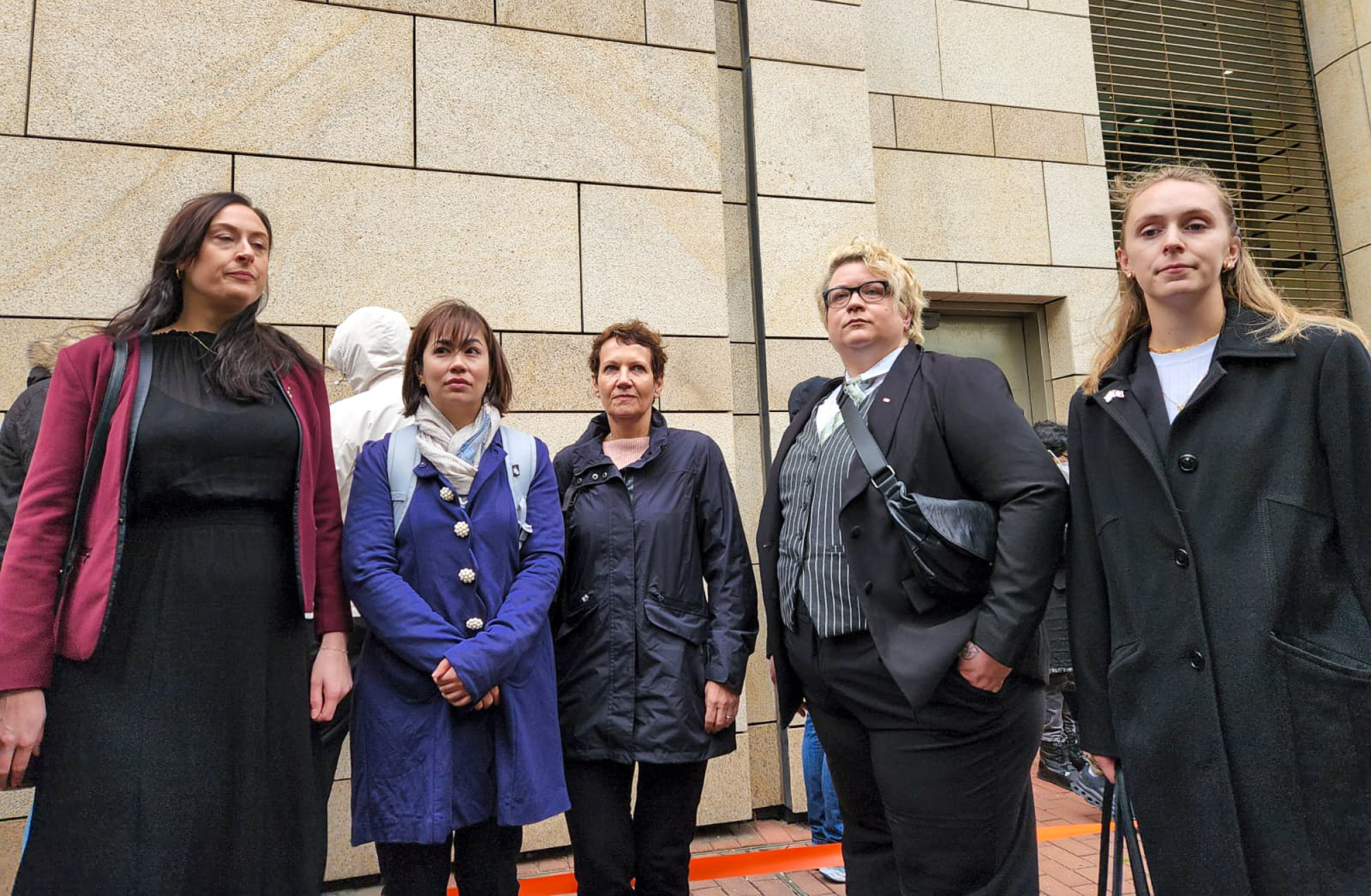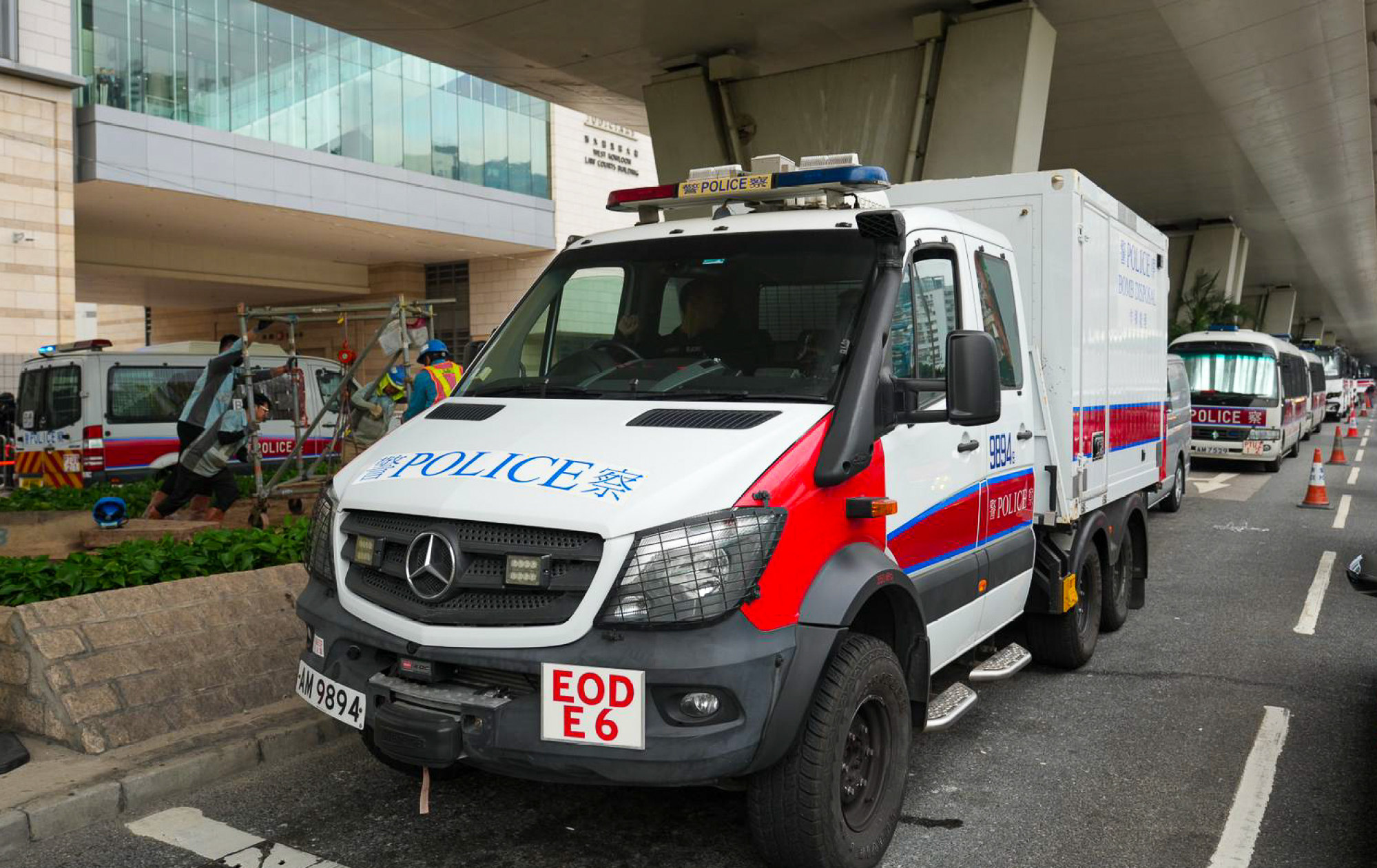National security trial of Hong Kong media tycoon Jimmy Lai begins amid heavy police presence
He was brought to West Kowloon Court at 7.35am on Monday.
Representatives from the consulates of New Zealand, Australia, Switzerland, Canada and the United Kingdom arrived at the court at 8.20am to observe the trial.
A representative for the United States, who arrived at 8.30am, told the press at the site that she hoped the city’s national security trials “would be kept public”.
Also in the queue was Matthias Kaufmann, counsellor and deputy head of the European Union Office to Hong Kong and Macau. He said he was in court to express the union’s “keen interest” in the case and its commitment to ensuring the city upheld the rule of law.

Retired Catholic leader Joseph Zen Ze-kiun was seen entering the courthouse at 9am.
A founding leader of the Democratic Party, Emily Lau Wai-hing, arrived at 9.45am. She told the press that she hoped Lai would get a fair trial.
Barristers began arriving at the court at 8.45am. Colman Li Fung-kei, one of the lawyers representing Lai, was seen entering the building at 8.50am.
The trial, which is a High Court case, was moved to the more spacious West Kowloon Court to better accommodate crowds and in light of the time marathon proceedings expected to last 80 days.
Stage set for Hong Kong media mogul Jimmy Lai’s national security trial
Three judges approved by the chief executive to hear national security cases will preside over the proceedings: Madam Justices Esther Toh Lye-ping and Susana D’Almada Remedios and Mr Justice Alex Lee Wan-tang. The case will be heard without a jury after justice minister Paul Lam Ting-kwok cited concerns including “involvement of foreign factors”.
Police earlier announced they would deploy 1,000 officers, including personnel from the Counter Terrorism Response Unit and bomb disposal squad, to guard the area round the clock over the next three months. Sniffer dogs would also be dispatched, the force added.
A police bomb disposal vehicle was seen parked on a lane opposite the courthouse entrance.

The judiciary has set aside 388 seats for members of the public to attend the trial. Seventy spectators will observe the proceedings from the main courtroom’s public gallery, while the rest will watch a live broadcast. Another 161 seats have been reserved for the press.
At the press and public queues outside the court building, there were about 40 people in each of the two lines shortly after 7am on Monday.
The first four people in the public queue said they wanted to see the trial because of its historical significance.
A man who was first in the public members’ queue, who gave his name as JC, said he had been waiting outside the court since 10pm last night.
‘1,000 Hong Kong police officers to guard West Kowloon Court’ for Jimmy Lai’s trial
“I want to make sure I can go inside,” the 29-year-old catering worker said. “I’m worried there are people who were paid to queue up coming here to take the spots.”
He said he saw fewer than 10 police officers outside the court building last night.
An arts professional in his 40s, who gave his surname as Sung, said he was second in the queue after arriving at 4am this morning.
“I was inspired to come here after reading an interview of JC. It was interesting to see someone come by so early, which inspired me to join him so he won’t be alone,” he said.
Two observers from Reporters Sans Frontières, an international non-governmental organisation advocating for press freedom, were third and fourth in line. They said they had flown into the city for the trial.
The public queue included people of all ages, both the young and the elderly, vying for a spot inside the courthouse.
A retiree in her 60s, who gave her surname as Wong, said she came at 7am to secure a seat.
“We need to support Hongkongers. I think he did nothing wrong,” she said.
There were concerns during the opening of a high-profile subversion trial in February involving 47 opposition politicians that some people had been paid to wait in the public queue and attend the trial.
The Post has not seen anyone paying others to wait for a public seat, or receiving payment for queuing up on Monday morning.
The first batch of public members and the press entered the courthouse for security checks at 8.30am.